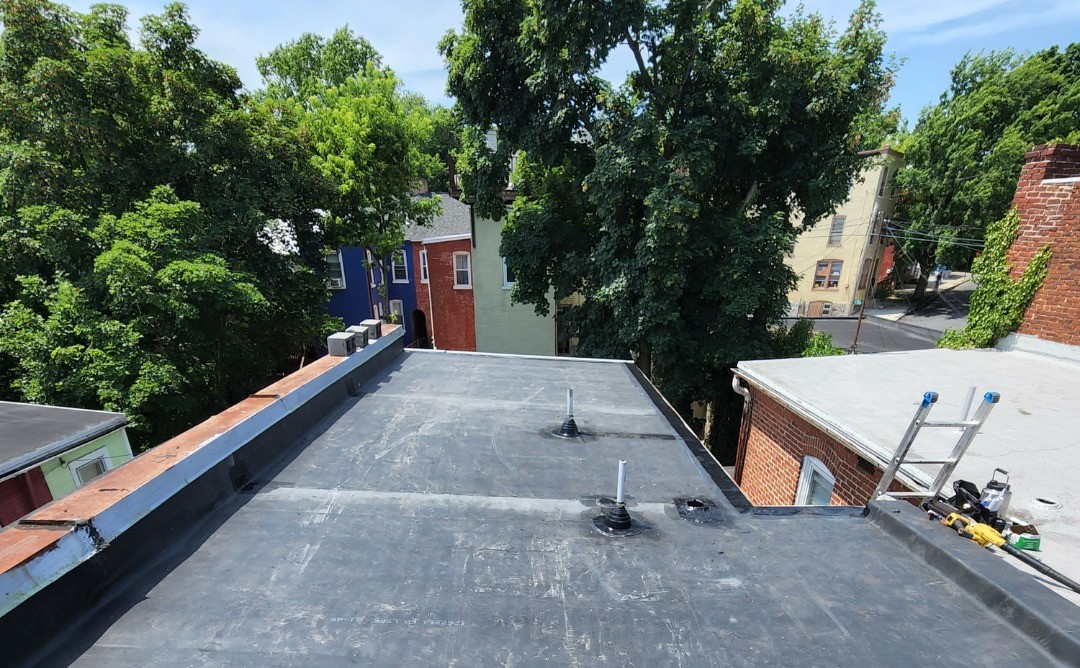If third-party entities don’t meet their deadlines for using the federal pandemic relief funds that they received from Lancaster city, the money will instead go toward the city’s critical repair program for low- and moderate-income households, under the terms of a bill scheduled for a City Council vote later this month.

The legislation is intended as a precaution, to keep the money local and avoid having to return any of it to the U.S. Treasury, Community Planning & Economic Development Director Chris Delfs told council at its committee meeting earlier this month.
In all, Lancaster received $39.5 million in American Rescue Plan Act funds, or ARPA. Of that, $15 million was used for grants for community facilities ($5 million) and affordable housing ($10 million).
Of the latter amount, $300,000 went to the critical repair program: The remainder of the $15 million went to third parties, mostly nonprofits. (To see the city’s interactive chart of the allocations, click here.)
- Previous coverage:
Under the terms of the ARPA law, all ARPA money must be allocated by the end of 2024 and spent by the end of 2026. That means it would be too late to reallocate funds if the city were to learn next year or the year after that some of its grant money could not be spent in time. The bill is thus a pre-emptive move to provisionally reallocate any such funds now.
The city is looking to make one reallocation already, just ahead of the end-of-year deadline. An award of $150,000 made to a community project will instead be directed to the critical repair program, city spokeswoman Amber Righter said.
The money had been allocated to Lancaster-Lebanon Habitat for Humanity for a proposed eight-unit building at 913 Wheatland Ave. However, because of Habitat’s fundraising and construction timelines, the 2026 deadline for using the money did not look achievable.
Instead, the city has agreed to allocate $150,000 to the project from HOME funding, which comes from the U.S. Department of Housing & Urban Development. The city and Habitat plan to sign a memorandum of understanding early next year to formalize the arrangement, Mayor Danene Sorace said.
The city has been a “true partner” in working through the issue, Habitat President & CEO Andrew Szalay said.
“The solution makes sense and allows Habitat to continue planning,” he said.
City Council allocates ARPA money by ordinance, which requires a first reading, followed by a vote at a later meeting. The first reading will take place Tuesday, Dec. 17, City Clerk Bernie Harris said. That was to be council’s last meeting of the year, so a special meeting has been scheduled for 6 p.m. Monday, Dec. 23, to vote on the $150,000 reallocation.
Looking ahead
It’s possible that the rest of the money will be spent as planned and the city won’t need to reallocate any of it, Delfs said. If some does go unspent, it will probably be in the range of a couple of hundred thousand dollars, he said.
The city has contracts with all its third-party ARPA recipients that include timetables and quarterly reporting requirements, so the city will have all the information it needs to determine if it needs to invoke the bill and revoke funding, Solicitor Barry Handwerger said.
There is plenty of demand for the critical repair program, Delfs said, and his team is confident it could spend any extra money it receives. It has completed critical repairs for 40 houses this year as well as lead remediation for 140 houses through its federally funded Healthy Homes program.
Handwerger acknowledged that the concept of proactively authorizing a potential future reallocation may not pass muster with the U.S. Treasury. That “is a great unknown,” he said, noting that the “final rule” on ARPA has changed at least 11 times so far and could change again under the Trump administration.
The bill’s goal, he said, is simply to give the city the best possible shot at keeping all its ARPA money for local use.
The rest of ARPA
Lancaster has allocated just over half of its ARPA allocation, $20.6 million, to “revenue replacement” — that is, on covering revenue shortfalls in its annual budgets from 2021 through 2024. It has spent another $500,000 on administrative and legal costs.
Add in the $15 million allocated for housing and community facilities (including critical repair), and that leaves $3.4 million. Bills up for votes at City Council on Dec. 17 would allocate $2.4 million of that for revenue replacement in the 2025 budget and the remaining $1 million for renovations at the Joe Jackson Tot Lot, one of three parks the Department of Public Works is looking to upgrade.
The Tot Lot project is budgeted at $1.8 million and would start next year, Deputy Public Works Director Cindy McCormick said.
(Editor’s Note: This article was updated Friday, Dec. 13, with new information explaining the background of the $150,000 ARPA reallocation.)






